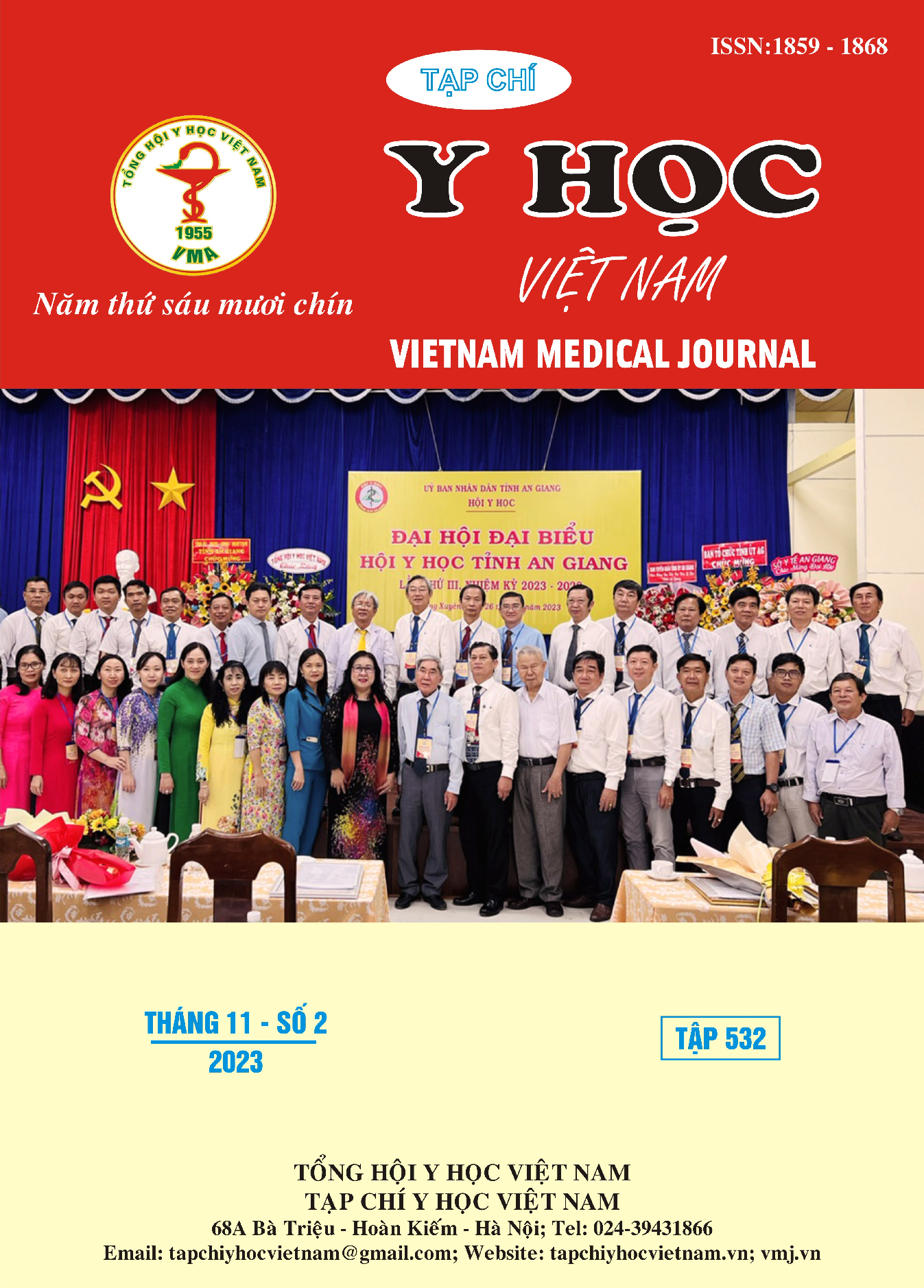PRELIMINARY EVALUATION OF URGENT- START PERITONEAL DIALYSIS FOR END- STAGE RENAL DISEASE PATIENTS AT THE UNIVERSITY MEDICAL CENTER, HO CHI MINH CITY
Main Article Content
Abstract
Objective: To investigate urgent-start peritoneal dialysis (PD) for unplanned dialysis end-stage renal disease (ESRD) patients at the University Medical Center, Ho Chi Minh City. Method: We conducted a prospective observational cohort study from November 2020 to May 2023 to examine the use of urgent-start PD for unplanned ESRD patients. Urgent-start PD was defined as the initiation of PD therapy within 14 days after catheter insertion. We recorded data on dialysis prescription, dialysis-related complications and short- term (3 months) outcomes for patients who met the inclusion criteria and did not have any exclusion criteria. Results: Our study enrolled 68 patients with a mean age of 59.63±12.9 years, with a female-to- male ratio of 3:2). The median break-in period (the time between catheter insertion and the start of PD therapy) was 4 days (interquartile range 4 – 5 days). The patients were treated with automated peritoneal
dialysis (APD) in a supine position on the first day, with a dialysis prescription set at a low fill volume of 600 mL, dwell time of 6 hours, and a total exchange volume of 5 L/day. The prevalence of dialysis-related complications was 19.1% with infection related complications at 10.3% and mechanical complications at 14.7% during the first month. In the first three months, eight cases required catheter repositioning with surgery (five cases due to a fallopian tube inserted into the catheter and three cases due to omental wrap). We observed positive short-term (3 months) outcomes with 100% of patients continuing with PD and experiencing improvements in biochemistry results including serum urea, hemoglobin, albumin levels. Conclusion: Our findings suggest that urgent-start PD is a safe, effective and practical approach for the treatment of unplanned dialysis ESRD patients.
Article Details
Keywords
End-stage renal disease, Urgent-start peritoneal dialysis, unplanned dialysis.
References
2. Liyanage T, Toyama T, Hockham C, et al. Prevalence of chronic kidney disease in Asia: a systematic review and analysis. BMJ Global Health 2022; 7: e007525. doi: 10.1136/bmjgh-2021- 007525.
3. Phongphithakchai A, Dandecha P, Raksasuk S and Srithongkul T. Urgent-start peritoneal dialysis for end-stage renal diseases: literature review and worldwide evidence-based practice. Renal Replacement Therapy 2021, 7: 65. https://doi.org/10.1186/s41100-021-00384-2.
4. Povlsen J, JV, Ivarsen P. How to start the late referred ESRD patient urgently on chronic APD. Nephrol Dial Transplant 2006; 21(Suppl 2): ii56- ii59. Doi:10.1093/ndt/gfl192.
5. Xu D, Liu T, Dong J. Urgent-start peritoneal dialysis complications: Prevalence and Risk factors. Am J Kidney Dis. 2017; 70 (1): 102-110.
6. Yaxley J, Scott T. Urgent-start peritoneal dialysis. Nephrologia 2023; 43(3): 293-301.
7. Ye H, Yang X, Yi C, et al. Urgent-start peritoneal dialysis for patients with end-stage renal disease: a 10-year retrospective study. BMC Nephrology 2019; 20: 238.
https://doi.org/10.1186/s12882-019-1408-9.
8. Zang X, Du X, Li L, et al. Complications and outcomes of urgent-start peritoneal dialysis in elderly patients with end-stage renal disease in China: a retrospective cohort study. BMJ Open 2020; 10: e032849. doi: 10:10.1136/bmjopen- 2019-032849.


